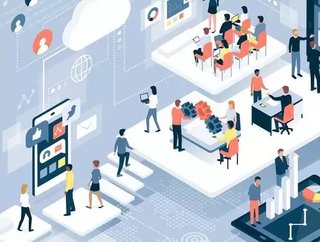IBM: HR 3.0 - how COVID-19 has accelerated digitalisation

With COVID-19 putting pressure on organisations to rethink how they operate, as well as how they address people and talent issues, IBM’s Amy Wright, Managing Partner for IBM Talent and Transformation in IBM Services explains that “the role of talent executives has never been more critical.”
Prior to COVID-19, research by IBM indicated that in the next three years, 120mn workers in the 12 largest economies may need to be retrained or reskilled due to artificial intelligence (AI) and intelligent automation. Wright highlights that talent issues such as these have only been heightened due to COVID-19.
With C-suite leaders looking to rapidly transform and overhaul business models to meet new customer needs, the biggest hurdle has been identified as inadequate skills. “These include both technical skills to work with technology as well as behavioral skills like agility and the ability to collaborate effectively,” commented Wright, who added that “at the same time, our consumer research shows there has been a permanent shift in the expectations employees have of their employers, including better support for their physical and emotional health or skills training.”
With these trends in mind, IBM sees HR as being ‘ripe for disruption’. “CHROs can seize this moment to evolve, just as CFOs did in 2008 with the economic crash, to bring forward a new era of HR—what we at IBM refer to as HR 3.0,” commented Wright. “It’s an exciting vision, in which HR shifts away from a process-oriented function to an agile consulting arm and in doing so, drives engagement and productivity, fosters trust in uncertain times and cultivates resilient workforces.”
Key patterns in relation to action taken to progress on the journey to HR 3.0
- Accelerating continuous learning and feedback - with the rise of new digital tools, the need for new skills also rises. IBM explains that, in HR 3.0 leaders will focus on establishing a culture of continuous learning using advanced analytics and AI to identify future skills needed, as well as provide multi-model training opportunities.
- Data driven decisions - “Like the rest of the workforce, the HR function needs to adopt new skills and ways of working, and improve how they apply technologies like cloud, AI and automation to be more agile and operate more strategically, commented Wright. In moving HR to a hybrid cloud environment, it is expected to provide leaders with scalability and flexibility for evidence based decision making. Prior to COVID-19 IBM identified that only 30% of companies were utilising AI capabilities in HR. However, “during the pandemic that shifted, as many turned to AI-enabled HR applications like chatbots to give workers critical health, safety and logistical information.”
For more information on business topics in the United States and Canada, please take a look at the latest edition of Business Chief North America.






